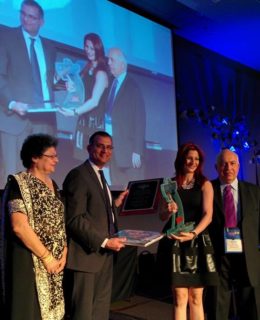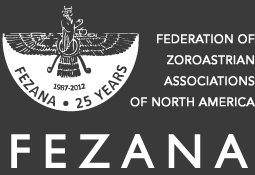FEZANA, the Federation of Zoroastrian Associations of North America, supports the United Nations Sustainable Development Goal number 14
From VOICE VOL 21, NO. 03 – MARCH 2017
UN calls for commitments to safeguard the world’s oceans ahead of first major conference
Calling for concrete actions to protect the oceans, the United Nations has launched an online register to collect voluntary commitments made by UN Member States, businesses, civil society organizations, the UN System and other intergovernmental organizations that can meaningfully contribute to the implementation of Sustainable Development Goal (SDG) 14.
![]() The Government of Sweden, the UN Environment Programme (UNEP) and the Peace Boat group, a non-governmental organization, were the first to list their contributions on the Registry of Voluntary Commitments during its launch at the Preparatory Meeting of The Ocean Conference on 15 February.
The Government of Sweden, the UN Environment Programme (UNEP) and the Peace Boat group, a non-governmental organization, were the first to list their contributions on the Registry of Voluntary Commitments during its launch at the Preparatory Meeting of The Ocean Conference on 15 February.
Their commitments highlight efforts to protect the marine environment, curb marine pollution and address the impact of ocean acidification. Further commitments have been made since then, by the World Meterological Organization to improve weather forecasting in polar regions, and by CALAO Luxembourg ASBL to protect the biodiversity of Cabo Verde from marine debris.
“Between now and The Ocean Conference in June, we’re expecting hundreds of actionable voluntary commitments to be registered. They must comprehensively cover all targets for the implementation of SDG 14,” said the President of the UN General Assembly, Peter Thomson of Fiji. “These voluntary commitments will be central to the global plan to reverse the cycle of decline into which human activity has put the Ocean.”
A list of voluntary commitments from all stakeholders in driving implementation of SDG 14 will be a central outcome of The Ocean Conference, which will take place from 5 to 9 June in New York. The Conference will support the implementation of SDG 14, which calls for the conservation and sustainable use of the oceans, seas and marine resources. The Conference will also result in a declaration that will serve as a “Call to Action” to support the implementation of the Goal.
“This is a matter for all of humanity,” said the Minister for International Development Cooperation and Climate and the Deputy Prime Minister of Sweden, Isabella Lövin. “The Ocean Conference is the opportunity for all stakeholders to make their voluntary commitments to save our ocean.”
The Government of Sweden commits to expand its marine protected areas to reach the SDG 14 target in 2017; UNEP will campaign to stop plastic pollution in the ocean; and the Peace Boat group aims to launch the “Ecoship Project”, a 55,000 ton energy efficient vessel which will set sail in 2020 as a flagship for the SDGs.
“Only by mobilizing all actors, from Governments and the UN system, to major groups and other stakeholders, can we generate the actions needed to conserve and protect our oceans and seas for future generations,” said the Conference Secretary-General and UN Under-Secretary-General for Economic and Social Affairs, Wu Hongbo. “The registry of voluntary commitments will be an important tool in this endeavor.”
More than three billion people depend on marine and coastal biodiversity for their livelihoods. However, today some 30 percent of the world’s fish stocks are over exploited, reaching below the level at which they can produce sustainable yields.
Oceans also absorb about 30 percent of the carbon dioxide produced by humans, but there has been a 26 percent rise in ocean acidification since the beginning of the industrial revolution. Marine pollution, an overwhelming majority of which comes from land-based sources, is reaching alarming levels, with an average of 13,000 pieces of plastic litter to be found on every square kilometre of ocean.




